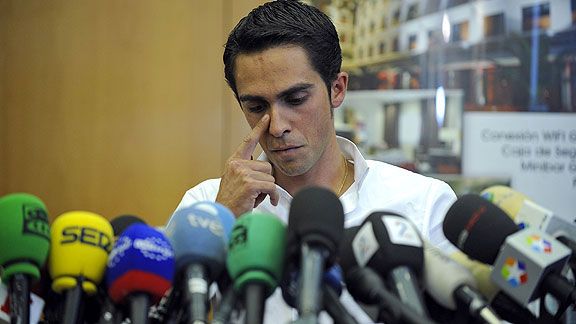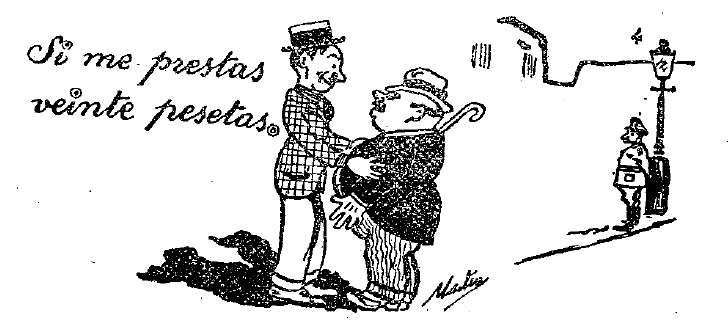
| Языки :: Испанский |
| Аудио |

 |
|
 |
|
15 |
Español |
Spanish |
|
Lección Cuarta (4ͣ) |
||
|
Let us now adopt the normal form of our lessons; |
||
| Dos semanas después (fin) | Two weeks later (the end). | |
| 1 | ¿Es la vida tan cara en Paris? | Is [the] life so expensive in Paris? |
| 2 | Mucho mas cara que en Madrid; y con las excursiones, los teatros, los cafés... (1) |
Much more expensive than in Madrid; and with the excursions, the theatres, the cafes... |
| 3 | ¿Tenias mucho dinero? | Had [Held] (you) much money? |
| 4 | Tenia dos mil francos (2). | (I) had [held] two thousand francs. |
| 5 | ¡Mil francos por semana! ¡Caramba! ¡No has perdido el tiempo! ¡Y ahora? |
(One) thousand francs a [by] week! By Jove! (You) have not lost your [the] time! And now? |
| 6 | Ahora, si me prestas veinte pesetas,
serás un perfecto amigo (3). |
Now if (you) lend me twenty pesetas (you) will be a perfect friend! |
| EXERCISE : | ||
|
(Each lesson will, from now on, includes an exercise of repetition. Let us begin modestly by a few short sentences, which you will read once first, making sure of the meaning of the English text, then a second time, repeating without looking at the text. As there are no new words, we shall not give the figured pronunciation). |
||
| 1 | Yo me he marchado. | I have left [have marched me]. |
| 2 | Tú has perdido mucho dinero. | You have lost much money. |
| 3 | Todo el mundo ha regresado tarde. | Everybody [all the world] has come back late. |
| 4 | Mi director me ha visto. | My director has seen me. |
| 5 | La vida es mas cara en Paris que en Madrid. | [The] life is more expensive in Paris than in Madrid. |
| Don't forget that s remains hard between two vowels. |
| NOTES. | |
| 1 |
La excursion : the excursion; |
| 2 |
To have, when not an auxiliary, is tener. Stress the í strongly in tenías and especially in tenía, for the word tenia (pron. taynia) also exists, with the same meaning as in English (taenia = tapeworm) but stressed on the e. |
| 3 |
Hour is hora; ahora is literally : "at hour",
i.e.; at the present hour, now. Don't forget that h is always mute. |
